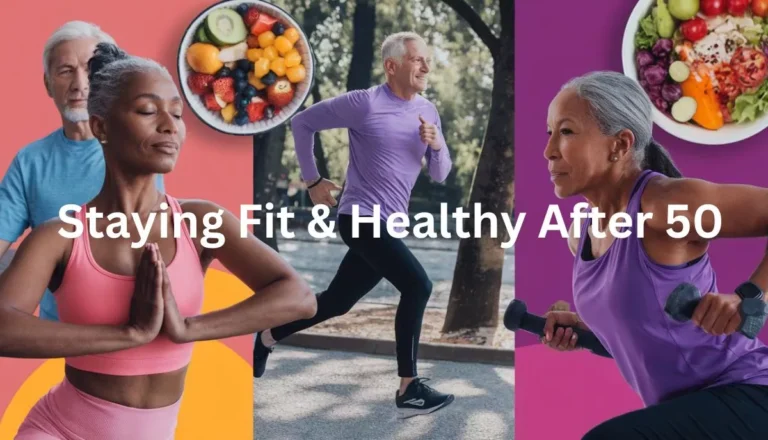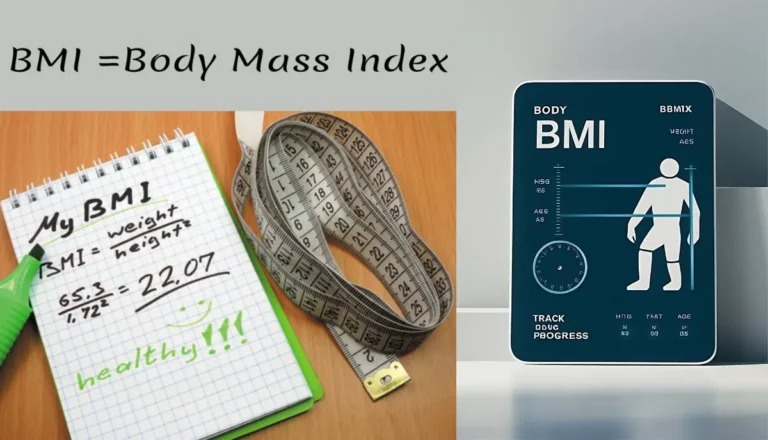Disclaimer: I have affiliate links in this post and receive a commission on any purchases you make at no cost to you. It’s one of the ways I support my site.
Why should I exercise? Did you know that just 15 minutes of running a day can cut the risk of major depression by 26%? This fact comes from the Harvard T.H. Chan School of Public Health. It shows working out does more than help you stay fit. It’s key for your physical, mental, and social health.
Physical activity is crucial for your heart health, and weight management, and can ease anxiety and depression. It makes your memory sharper, helps you focus better, and can even treat ADHD. Exercise also improves sleep and builds social connections through group activities.
This article will explore why exercising is so important. We’ll show how regular, fun physical activity can greatly benefit your life.
Understanding the Importance of Physical Activity
Physical activity is key to good health. It boosts fitness and keeps you healthy. Active people see big health benefits, like better heart health and a happier life.
Studies show that watching TV for over four hours a day can increase the risk of heart disease by 80%. This shows the risks of sitting too much. But, being active can make you live about seven years longer than those who don’t move much. This proves that it is vital to do this every day.
Working out can make you feel happier and more confident. Those who work out often feel better about themselves. The American Heart Association says you should do at least 150 minutes of moderate exercise each week. Every bit of activity helps, showing that small steps can make a big difference.
Only 31% of adults and 80% of teens get enough exercise. The goal is to reduce inactivity by 10% by 2025 and 15% by 2030. Not focusing on this could cost health systems around $300 billion in the next ten years if we don’t stay active.
Not moving enough can lead to heart disease, cancer, and diabetes. But, being active can lower these risks. It leads to a longer and healthier life. It’s crucial to be moderately active to enjoy these benefits.
Why Should I Exercise: Key Reasons for Staying Active

Regular exercise offers many benefits that go beyond just looking good. It helps with heart health, muscle strength, and keeping a healthy weight. These are key areas where staying active makes a big difference.
Improve Cardiovascular Health
Working out often boosts your heart health. Activities like running, swimming, and cycling help lower blood pressure and improve cholesterol. This reduces the risk of heart problems like coronary artery disease and heart attacks.
It also helps control blood sugar levels, making insulin work better. This lowers the chance of getting metabolic syndrome and type 2 diabetes.
Enhance Muscle Strength and Flexibility
Doing strength training and flexibility exercises builds muscle and keeps bones strong. Lifting weights and resistance training increase muscle strength and flexibility. This reduces injury risk and improves physical function.
For older adults, these exercises are crucial for staying balanced and avoiding falls.
Maintain Healthy Body Weight
Exercise is key to keeping a healthy weight, along with a balanced diet. It burns calories and boosts metabolism, helping to balance what you eat. By doing moderate to intense exercise, you lead a healthier life.
This helps fight obesity and supports overall well-being and a longer life.
| Benefit | Exercise Type | Details |
|---|---|---|
| Cardiovascular Health | Aerobic Exercises | Lowers blood pressure, cholesterol, and the risk of heart disease |
| Muscle Strength | Resistance Training | Enhances muscle tone, strength, and flexibility while reducing injury risk |
| Weight Maintenance | Moderate to Vigorous Activities | Aids in burning calories and managing weight effectively |
Health Benefits of Exercise
Regular exercise brings many health benefits for a balanced life. It helps control weight and manage obesity. By adding physical activity to your day, you can lose body fat. This is key in fighting health risks.
Control Weight and Manage Obesity
Sitting too much can lead to weight gain and obesity risks. Exercise burns calories and boosts your metabolism. Aim for at least 150 minutes of moderate activity each week to help control your weight. This can also prevent serious health problems linked to obesity.
Reduce the Risk of Chronic Diseases
Being active lowers the risk of chronic diseases. People who exercise often have a lower chance of getting heart disease, type 2 diabetes, high blood pressure, and some cancers. Studies show that regular exercise can cut the risk of dying early by up to 30%. This shows how important it is to stay active for a long life.
Improve Blood Pressure and Cholesterol Levels
Exercise boosts heart health by improving blood pressure and cholesterol. Being active helps with better blood flow and heart work. This leads to lower harmful LDL cholesterol and more beneficial HDL cholesterol. This change helps you stay healthy and can prevent serious health issues later.
Boosting Mental Health through Exercise
Exercise is a strong way to boost mental health. Regular physical activity does more than just improve health. It helps reduce anxiety and ease depression symptoms. Many studies prove that aerobic exercises are great for mental health.
Reduce Symptoms of Anxiety and Depression
Studies show that physical activities like aerobic exercises can cut down anxiety and depression. A study over three months found exercise benefits for people with schizophrenia. They got better in fitness, weight, and energy levels.
Just thirty minutes of moderate exercise three times a week can make a big difference. Exercise releases happy chemicals like endorphins and serotonin. These help improve mood and reduce stress.
Promote Better Sleep Patterns
Regular workouts are a key to better sleep. It helps people fall asleep faster and sleep deeper. This reduces insomnia issues.
Exercise offers many health perks, like better sleep and less stress. This shows how important it is to add physical activity to daily life for better mental health.
The Role of Exercise in Social Well-being

Physical activity has big social benefits that help with overall well-being. By doing different physical activities, people can make strong connections and find support.
Build Connections Through Group Activities
Activities like team sports, fitness classes, or community runs bring people together. They help everyone work towards the same goals. This creates a sense of friendship and lets people meet others who like the same things.
Joining a local running group or going to a yoga class gives a feeling of belonging. These changes make social well-being better.
Enhance Self-Esteem and Confidence
Doing regular workouts does more than just make you healthier. It also boosts self-esteem. When you reach fitness goals, feel stronger, and stay at a healthy weight, you see yourself in a better light.
This better self-image spreads to other parts of life. People feel more confident in social settings. Being in group activities lets people show off their skills. This makes them feel more valuable.
| Activity Type | Social Benefit | Self-Esteem Impact |
|---|---|---|
| Team Sports | Builds teamwork and friendships | Improved confidence through collaboration |
| Group Fitness Classes | Fosters a supportive community | Boosts self-image with physical progress |
| Yoga Sessions | Encourages connections with like-minded individuals | Enhances relaxation and mental clarity |
How Exercise Improves Brain Health

Regular workouts are key to a healthy brain. It boosts cognitive function and memory. It also increases blood flow to the brain, giving it the nutrients it needs to work well.
People who exercise often see big improvements in their mental skills.
Increase Cognitive Function and Memory
Exercise helps the brain in many ways. It makes more of a molecule called brain-derived neurotrophic factor (BDNF). This molecule is important for memory.
Regular physical activity also lowers stress hormones in the brain. This helps improve memory. Exercise makes the mind clearer, which helps keep the brain active.
Stimulate Brain Cell Growth
Physical activity helps brain cells grow. Studies show that regular aerobic workouts make the brain bigger in older people. This means it can handle more information.
Exercise also makes the brain more flexible. It helps the brain adapt and change. This keeps the brain healthy and protects it from getting worse over time.
Effective Exercise Strategies for Different Age Groups

Creating good workout plans means knowing what each age group needs. Every stage of life has its challenges. It’s key to follow the right exercise advice for teens and adults. Staying active helps keep you healthy and fit for years to come.
Exercise Recommendations for Adolescents
Kids and teens aged 6 to 17 should get at least 1 hour of physical activity every day. This should include:
- Aerobic activities like running, swimming, or biking
- Muscle-strengthening activities like push-ups and weight lifting
- Bone-strengthening exercises, including jumping and running
Joining sports and fun activities is great for fitness and making friends.
Staying Active as You Age
As we get older, it’s more important to stay active. Experts suggest:
| Age Group | Recommended Activity |
|---|---|
| 20s | Strength training 2 to 3 days per week |
| 30s | Weight training and bone-strengthening activities, 150 minutes of moderate exercise per week |
| 40s | Cardio workouts 3 to 5 times per week |
| 50s | Low-impact activities like swimming or biking to minimize joint stress |
| 60s and beyond | Daily balance and flexibility exercises to maintain stability and prevent falls |
Older adults should do at least 150 minutes of cardio each week. Add in balance and strength training to keep healthy and avoid falls. Following these tips helps everyone stay active and healthy at any age.
Overcoming Barriers to Regular Exercise

Finding Motivation and Setting Goals
Setting personal fitness goals is key to staying motivated. Having realistic and achievable goals boosts confidence and keeps you committed. Here are some tips to help you stay on track:
- Schedule workout sessions in advance to make them a part of the daily routine.
- Join a fitness class or group to enhance social support.
- Track progress in a fitness journal or app.
It’s important to choose fitness activities you enjoy. Starting with physical activities you’re familiar with makes it easier to stick with new routines. This helps you overcome obstacles and stay motivated.
Time Management for Busy Lifestyles
For those with busy lives, managing time well is key. Here are some tips:
- Identify five 30-minute time slots within the week suitable for physical activity.
- Incorporate brief workouts into daily tasks, like taking stairs instead of elevators.
- Engage in outdoor activities when possible, incorporating workouts into walks or family outings.
Planning workouts when you have more energy can lead to better results. Doing indoor activities on bad weather days helps you stay active no matter what. Remember, even short exercises are good for your health and help overcome time issues.
| Barrier | Solution |
|---|---|
| Lack of Time | Identify 30-minute slots for physical activity and integrate movement into daily life. |
| Lack of Social Support | Encourage friends and family to join in exercise efforts. |
| Lack of Energy | Schedule workouts during periods of peak energy. |
| Lack of Motivation | Include physical activity in the schedule and partner with others for encouragement. |
| Fear of Injury | Learn proper warm-up techniques and gradually increase workout intensity. |
Looking at these barriers and finding solutions helps you move forward with your fitness goals. By staying motivated and managing your busy life well, you can make this a part of your daily routine.
The Importance of Enjoying Exercise
Finding joy in your workout routine is key to keeping it up. When you love what you do, you’re more likely to stick with it. Enjoying exercise can make you want to keep doing it, making it a big part of your life.
Selecting Activities You Love
It’s important to pick activities that match your interests for long-term success. Whether it’s dancing, hiking, or team sports, finding the right activities makes doing this fun. Doing what you love makes it easier to keep going, even when it’s tough.
Studies show that enjoying workouts leads to better mental and physical health. This makes it easier to stay motivated and overcome challenges.
Making Physical Activity a Fun Habit
Adding fun habits to your physical activity routine can boost your well-being. Small workouts like short bike rides or playing with pets can make you more active. Doing enjoyable activities often can increase energy and reduce stress.
Exercise can also improve your mood, boost confidence, and help you work better. When you start to enjoy exercise, it becomes a vital part of your day.
Conclusion
Regular workouts are key to a healthy life. It helps prevent diseases like heart disease and diabetes. It also boosts mental health.
Studies show that being active lowers the risk of obesity, some cancers, and dementia. This is why it’s so important.
It does more than keep you fit. It helps you make friends and feel part of a community. This is great for fighting loneliness and depression, especially in older people.
Being active also keeps you strong, flexible, and steady. This is important for avoiding falls and staying lively as you age.
So, why exercise? The answer is simple: it’s good for your body, mind, and social life. It makes you live longer and better. Let’s all make this a big part of our lives for a happier, healthier life.
Frequently Asked Questions
Q: Why should I exercise?
A: Regular physical activity has numerous benefits for your physical, mental, and social well-being. It can boost heart health, lower type 2 diabetes risk, and improve mental well-being.
Q: How can exercise help reduce my risk of diabetes?
A: Regular workouts can help control blood sugar and boost insulin sensitivity. Both are key to preventing or managing type 2 diabetes.
Q: What type of exercise should I do for the best results?
A: It depends on your goals, fitness level, and preferences. Aerobic exercises, strength training, and flexibility exercises all have unique benefits. Finding an exercise routine you enjoy will help you stick with it.
Q: How much exercise is recommended for improved health?
A: The Department of Health suggests at least 150 minutes of moderate, or 75 minutes of high, intensity aerobic activity each week. Also, do muscle-strengthening activities on two or more days a week.
Q: Can exercise improve my mental well-being?
A: Yes, doing this regularly may reduce anxiety, depression, and bad moods. It can improve self-esteem and brain function. Physical activity helps release endorphins, which are known to boost mood.
Q: What are the social benefits of exercising?
A: It can make social interactions more enjoyable by giving you a common activity to share with others. Group workouts, sports, and fitness classes are great opportunities to socialize and meet new people.
Q: Is exercise good for my sex life?
A: Yes, regular physical activity may improve your sex life by boosting overall energy levels, improving body image, and reducing risk factors for conditions that could impair sexual function.
Q: How does physical activity help with heart health?
A: Working out can reduce blood pressure, improve cholesterol levels, and strengthen the heart muscle. This helps in reducing the risk of cardiovascular diseases.
Q: Can even small amounts of exercise make a difference?
A: Absolutely. Even small amounts of being physical can have significant health benefits. Some activity is better than none. Accumulating it each day can greatly improve health.
Q: Should I talk to my doctor before starting an exercise program?
A: Yes, it’s best to talk to your doctor before starting any new workout program, especially if you have health issues.








